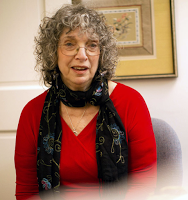Bartholet's support of baby buying as something acceptable is sending shock waves throughout the adoption community. Adoption practitioners concerned about their own reputations and referral business need to clearly distance themselves from this position and stand with those working such as Parents for Ethical Adoption Reform (PEAR), EBDAI, and Ethica to maintain adoption as an ethical process with integrity and transparency.
Many industries and institutions--pharmaceuticals, tobacco, law enforcement-- have been criticized, faced scandals and attacked from within by whistle blowers. Those within these industries can chose to deny that abuses have occurred, respect some code such as the "blue wall of silence", or welcome the investigations because their hands are clean. Driven by her ethics and morals, Ina Hut, upon resigning in disgust as director of Wereldkinderen (World Children) the largest adoption agency in the Netherlands recognized that "would-be parents have strong desires, and I understand that. Everybody has the right to want children," she said, adding: "but you don't have the right to children. Children have the right to parents. The right to children doesn't exist on this planet." She further recognized that it "became clear that in the debate around international adoption it is not in the interests of children" but in the interests of the would-be parents, " and also in the commercial interests ..."
Adoption practitioners must find their own moral compass and perhaps consider a different, albeit profitable, area of law that is less questionable. American adoption attorneys should applaud those who are working to eradicate illegal and unethical practices and "eliminating the greedy lawyers"(25) as unimportant and lesser evils than buying babies, because policing the illegal baby brokers will restore faith in those who are committed to ethical adoption practices.
Ethical attorneys and legislators with an ounce of morals, or even simply concern about their reputations, would do best to distance themselves from this renegade, dissociating from a supporter of baby buying.
End notes:
(1) Bartholet, Elizabeth. (2009) "International Adoption: The Human Rights Position." This is the pre-peer-reviewed version of the article "International Adoption, The Human Rights
Position," which will be published in final form in Global Policy, Issue 1, January, 2010.
(2) Saul, Stephanie (2009). "Building a Baby, With Few Ground Rules" New York Times, Dec 12. click here=MYWAY&ei=5065
(3) Family bonds: adoption and the politics of parenting (1993) and Nobody's children: abuse and neglect, foster drift, and the adoption alternative (2000)
(4) Bartholet (2009)
(5) http://www.law.harvard.edu/news/2009/06/15_policy.html
(6) ibid
(7) Wingert, Pat (2008) "When There's No Place Like Home: Children's advocates can't agree on how much to emphasize intercountry adoption as a solution" Feb 4, Newsweek http://www.newsweek.com/id/105531
(8) The Joint United Nations Programme on HIV/AIDS (UNAIDS), the United Nations Children's Fund (UNICEF), and the United States Agency for International Development (USAID). "Children on the brink 2004: a joint report of new orphan Estimates and a Framework for Action" data.unaids.org/Publications/External-Documents/unicef_childrenonthebrink2004_en.pdf
(9) Holt International Children's Services for USAID (2005) "Cambodia Orphanage Survey 2005" September.
(Note: You can view every article as one long page if you sign up as an Advocate Member, or higher).





